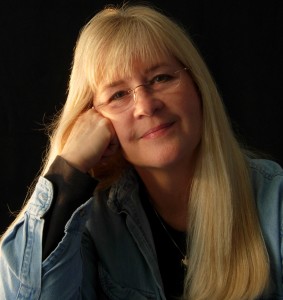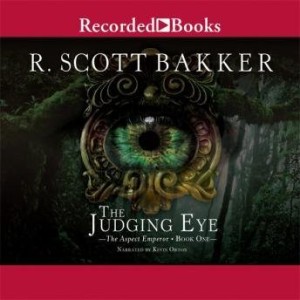A guest post by Marta Sprout.
You know the feeling. You, the writer of a magnificent novel, stare at yet another rejection notice, which you promptly shred into confetti and promise to use as tinder in your fireplace the next time the wind-chill sags below freezing.
So what’s wrong? Why can’t editors and agents see the brilliance of your story? The simple answer might be fiction faux pas. Here are a few of the red flags that make editors roll their eyes and grab for that nasty form letter faster than you type nope:
- The overuse of names in dialog.
- Dialog tags that go beyond said or asked.
- Too many modifying adverbs.
- Holy Moly! There be too many exclamation points here!!!!!!
You work hard to tell a ripping good tale and to present exciting dialog. Knowing what not to do is only part of the equation. What we need is to understand why something doesn’t work and how to fix it. Let’s take a look at what works and what doesn’t:
What would you think if you read a line of dialog that went something like this…
“Enough, Rebecca!!!” he yelled, angrily.
Oh good grief…Referee flags are flying like a brawl on the goal line. Let’s look closer.
There is nothing wrong with using names in dialog, unless you go overboard and make your characters sound stilted and awkward.
“Ben, I can’t stay here any longer.”
“Well, why not, Sarah?”
“Because, Ben, this is where it happened.” (Bum, bum, bum…bum)
The overuse of names can easily sound like newbie theater students trying to be uber-dramatic or like characters telling each other what they already know for the sake of the reader’s enlightenment.
“Well, Elizabeth. We’ve been married for twenty years and have three fine sons.”
(I’m thinking Lizzy already knows this.)
Another reason too many names don’t work is because they act like speed bumps and interrupt the flow of the conversation. Never interrupt dialog unless three guys with machine guns show up.
What about those modifying adverbs? On page 673 of Under the Dome Stephen King wrote: “Glinda,” the girl said faintly. If he can do it, why can’t you? Beyond the fact that he has sold over 350 million copies, even he uses modifying adverbs very sparingly. Verbal exchanges pop NOT when you tell the reader that she spoke angrily, boldly, emphatically, hesitantly, sadly, or joyously, but when you put the full force of those EMOTIONS into her words. Compare these lines:
- “You don’t listen,” she said angrily.
- “What is wrong with you? You never listen to me,” she said.
- Sarah smacked the silverware drawer shut. “What’s wrong with you? You never listen to me.”
In the first line, can you see how the character’s voice is so flat that the author has to tell us the character’s emotional state? The second line is better. We don’t need to be told that she’s hacked off because we can hear the anger rippling in her voice. In the third version, we are getting the emotion in her voice and we see and hear the snap of her gestures when she slams the drawer shut. The point here is that great dialog oozes action, emotions, and your characters’ own distinctive voices. Remember that in any conversation there are two expressions happening simultaneously: the verbal exchange and the body language, which can be even more telling. For example:
Richard launched out of his seat, towering over Sarah. “Do you love me?”
She stared at her lap and continued picking at her red nail polish.
“Answer the damned question.”
Sarah slouched in her seat and yawned. “Yeah,” she said without looking up.
Is Richard going to believe her? Not likely with that body language.
What about alternative dialog tags such as: he screamed, yelled, offered, replied, commented, snorted, bellowed, whimpered, etc? Here’s where the problem lies. Remember that some conventions in writing are done purely for the sake of clarification:
I love eating my dog and my grandmother (yuck) vs. I love eating, my dog, and my grandmother.
Like punctuation, dialog tags are purely for clarity and are meant to be invisible. They aren’t part of the dialog nor are they prose. To avoid repetition it makes sense that we’d be tempted to use something other than said. But trust me on this one, a reader’s eye will glide right over said and asked and remain focused right where you want it–on the conversation.
So, does that mean you will never see “he screamed” in the work of a bestselling author? Nope.
On page 180 of Tripwire, Lee Child wrote: “Get down,” Reacher shouted. If Lee Child can use these type of tags, why can’t you? You can, just do it in moderation and only when nothing else will do. Hint: they work best when showing a voice’s volume.
Speaking of punctuation. Exclamation points work only in extreme situations of utter desperation. Not so much when they crop up in every other line of dialog! Sometimes in multiples!!!!! Unless you write wonderful comic books, use them like hot Sriracha sauce–only when the situation requires a fierce punch. Remember those editors, whom you are trying to impress? They see the liberal use of exclamation points as sure signs of an amateur, which you’re not.
Writing is much more than a list of rules. It’s an art form. You can write anything–if it works. Language is fluid. Ever-changing. There was a time when we didn’t use punctuation or standardized spelling. Word usage evolves. If I had called you nice in 1285, you would have slapped me for calling you stupid. Back in the day of movies such as The Sound of Music, gay meant light-hearted or carefree. Lite is commonly used for the word light. Any form of written language from novels to nonfiction, blurbs to bumper stickers will BTW continue to change. The trick for a novelist is to tell a story that people will remember.
Good luck and keep writing.
About Marta Sprout:
Marta Sprout is an award-winning author. The Saturday Evening Post published her short story, The Latte Alliance, in their anthology “Best Short Stories of 2014 from The Great American Fiction Contest.” Her essays and articles have been published in newspapers and major magazines such as Antiques Magazine. Known for her thrillers, Marta writes full time, assists the Corpus Christi Police Department on crime-scene scenarios, and enjoys kiteboarding, scuba diving, and snow skiing.



